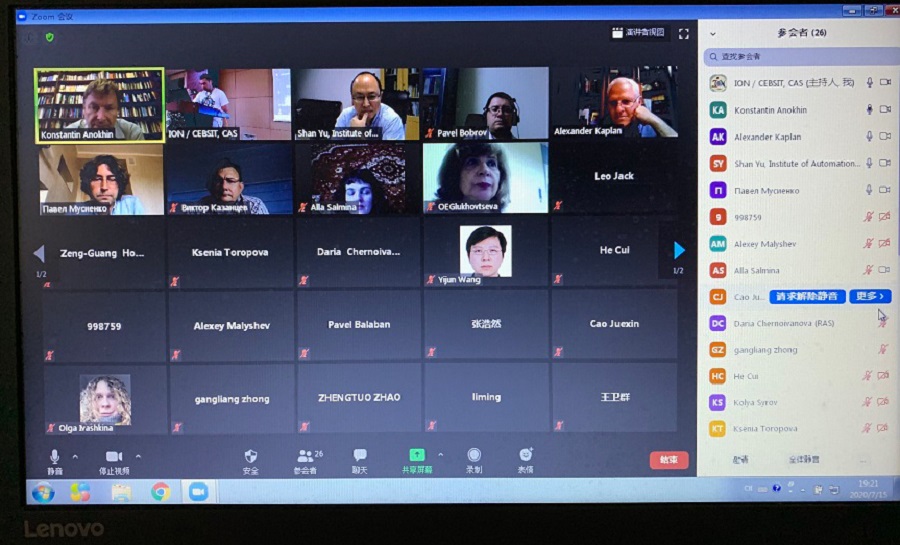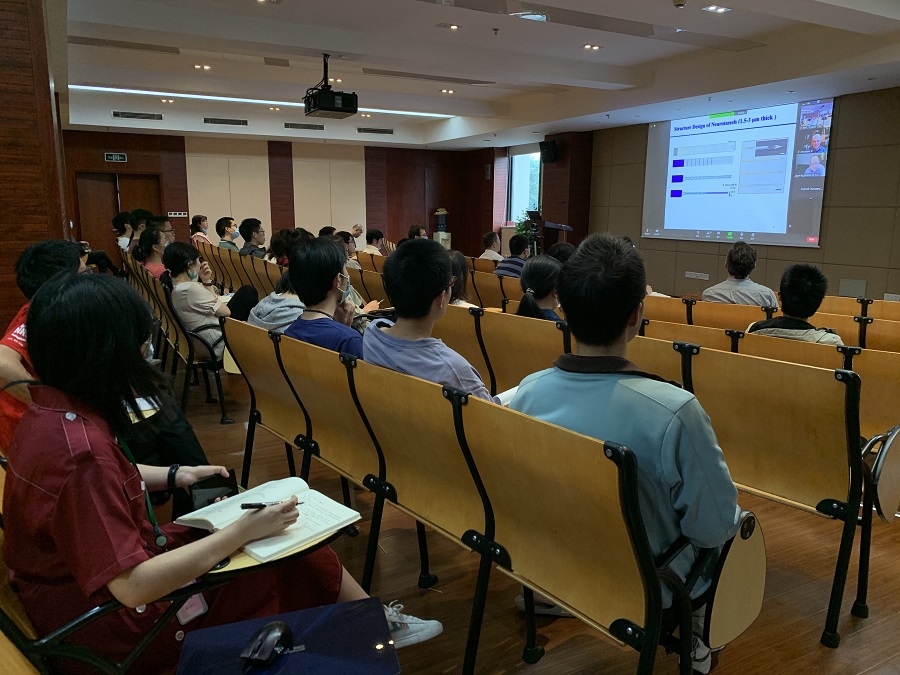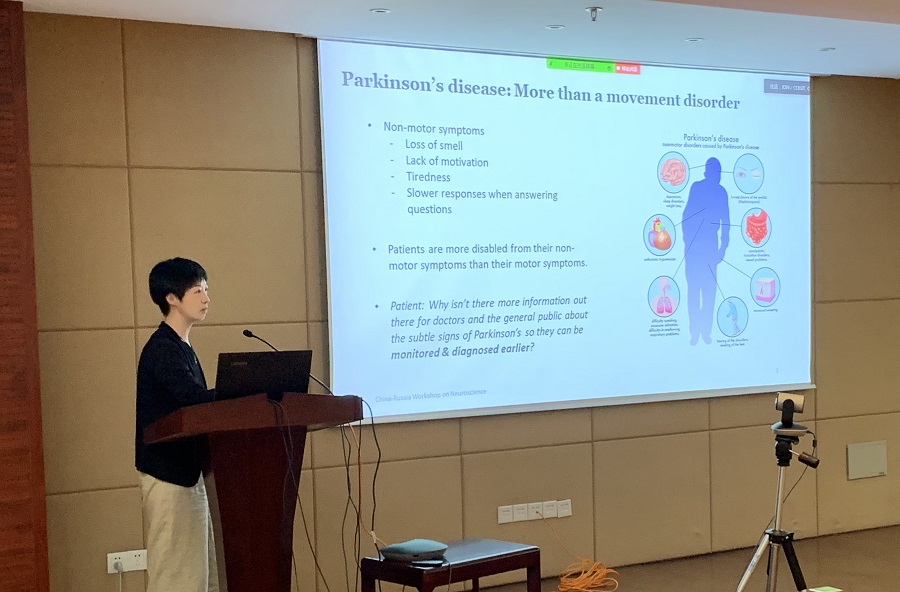Time:2020-07-21
A memorandum of scientific research cooperation among the Center for Excellence in Brain Science and Intelligence Technology (CEBSIT) of the Chinese Academy of Sciences and the Lomonosov State University in Moscow, Russia, and the Institute of Advanced Neural Activity and Neurophysiology of the Russian Academy of Sciences was signed in May 2020 following the visit of Sergeev Alexander Mikhailovich, President of the Russian Academy of Sciences, in March 2019.

As one of the important activities of China-Russia Innovation Year of Science and Technology, China-Russia Workshop on Neuroscience was successfully held from July 13 to 15, 2020. Due to the prevention and control of the COVID-19 epidemic, the Workshop was held online. Most of the Chinese scientists joined this workshop at the lecture hall of CEBSIT. More than 60 Russian scientists in the field of brain science and intelligent technology participated in through internet.

On July 13, Professor Mu-Ming POO, Scientific Director of the CEBSIT, and Professor Vladimir Chekhonin, Vice President of the Russian Academy of Sciences, addressed their opening remarks respectively. The theme of the Workshop on July 13 was “Fundamental Molecular, Cellular and Systems Neuroscience”. Drs. Ning-Long XU, Yan-Gang SUN, Xiao-Hong XU, Shi-Qing CAI, and Yong GU from CEBSIT introduced their recent findings in circuits, systems, molecules and development. Russian scientists, Alexey Semyanov, and Alexey Malyshev from the Russian Academy of Sciences, Rustem Khazipov from Kazan Federal University, Alexey Zheltikov from Lomonosov State University in Moscow, and Mikhail Lebedev from the Advanced Institute of Economics, National Research University introduced the glial cell, neurodevelopment, optical imaging and other fields. During the meeting, both sides conducted full discussions and exchanges to provide an opportunity for possible future cooperation.

The theme on July 14 was “Biomedical and Clinical Neuroscience”. Drs. Hung-Chun CHANG, Yue-Jun CHEN, Zhi-Feng LIANG, Zheng YE, and Shu-Jia ZHU from CEBSIT, introduced their recent findings in non-human primate disease models, stem cell applications, functional nuclear magnetic resonance technology development, cognitive impairment of Parkinson’s disease, molecular structure of ion channels, etc. Russian scientists, SN Illarioshkin, MA Piradov, DV Sergeev of the Russian Research Center for neurology, MV Ugrumov of the Russian Academy of Sciences, AB Salmina of the Krasnoyarsk State Medical University, and the RR Islamov of the Kazan State Medical University gave lectures on the neurodegenerative disease model, ultra-early diagnosis of Parkinson’s disease, loss of consciousness and gene therapy. Scientists from both sides discussed the possibility of cooperation in interdisciplinary subjects such as basic scientific research and translational medicine.
The theme of the Workshop on July 15 was “Neuroethologies and Brain-Inspired Technologies”. Chinese speakers are Ying FANG of National Nano Center, Yue-Ming WANG of Zhejiang University, He CUI of CEBSIT, Yi-Jun WANG of Institute of Semiconductors, Zeng-Guang HOU of Institute of Automation; Russian scientists are Vsevolod Belousov, Pavel Borov of Russian Academy of Sciences, Alexey Ossadtchi of Advanced Institute of Economics, National Research University, Lobachevsky State Victor Kazantzev of the University of Nizhni Novgorod. They agreed that China and Russia have common interests, such as decoding, clinical disease treatment and rehabilitation and other fields. At last, it is strongly recommended by both sides to promote exchanges and establish special cooperation funds to promote innovation results in internationally frontier field.
 附件下载:
附件下载: